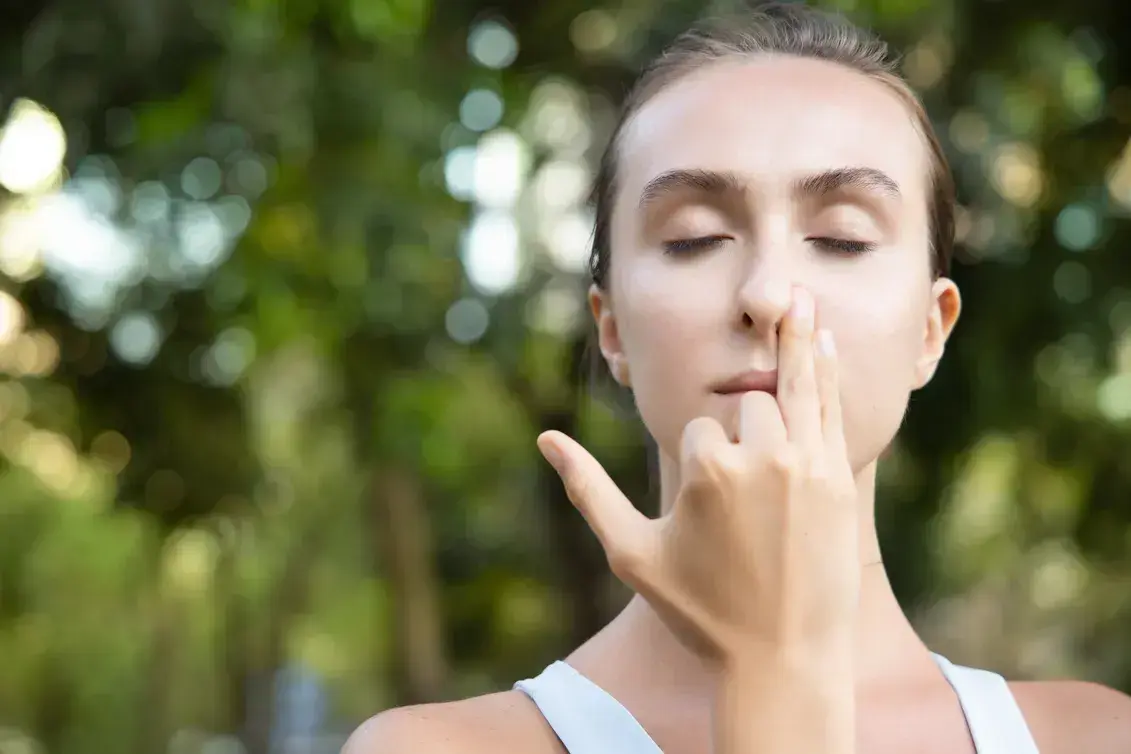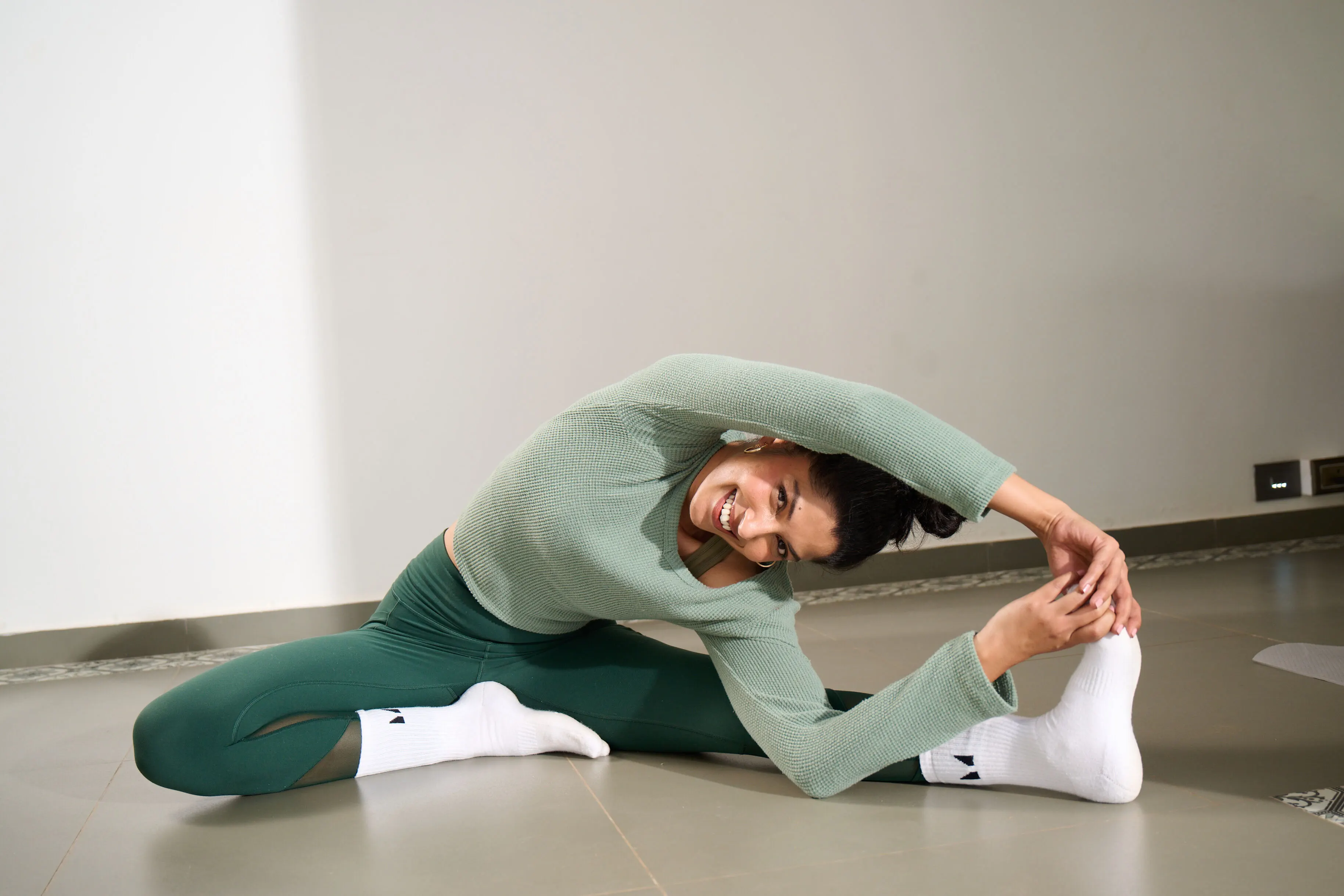Is taking care of your mental health on the top of your priority list? Do you feel like stress is the cause of sleepless nights, mood swings, indigestion, headaches, and more? Are you constantly feeling drained, low on energy and uninterested in doing anything? If you’re someone battling depression, whether mild or severe, yoga for mental health is a practice you should make a habit out of. As hard as it may feel to get to the mat on low days, the benefits of yoga for depression will help you greatly over time. Yoga is more than just asanas. The practices involve focus on the breath, body and mind, helping you become more mindful, relaxed and balanced. Practices like meditation give you a sense of confidence and mental strength. You will find that some of the benefits of yoga for depression are similar to those of yoga for anxiety. Let’s look at the top benefits of yoga for depression in this article.
Top benefits of Yoga for Depression
Reduces the impact of stress
Yoga is one of the most impactful practices that reduces stress. With the hectic lives many of us lead today, we are constantly dealing with pressures from work, home, relationships and our environment. This leaves us feeling mentally and physically exhausted, demotivated and can lead to a loss of interest. Persistently feeling this way can lead to depression. Practicing yoga regularly will help us let go of these external stressors, take our focus inward and develop a sense of peace and calm. Scientifically, this happens because our nervous system gets relaxed and balanced.
Helps deal with anxiety
Similar to dealing with stress, yoga for anxiety and depression is beneficial in combating feelings of anxiousness. The same stressors mentioned above can also lead to anxiety if we do not deal with it in time. Anxiety is a fear of something, either a desire or an event, person or situation. Yoga develops our awareness of thoughts and feelings, helping us manage these fears effectively. It keeps us balanced and grounded in reality.
Strengthens and focuses the mind
Regular practice of yoga asanas, breathing exercises, meditation and Yoga Nidra has a positive impact on strengthening and focusing the mind. Yoga Nidra, for example, works on the subconscious mind, rewriting and eliminating thoughts and emotions that have been stored for a long time. Dharana, the sixth limb of yoga, is the first stage of meditation. It means concentration. When you practice concentration regularly, your focus, awareness and sense of presence increases. This helps you stay grounded. So, everytime you are feeling anxious or depressed, your mindfulness antenna will go up, helping you manage thoughts better.
Stimulates the vagus nerve
The vagus nerve is the longest cranial nerve that runs from the brain, through the face and thorax to the abdomen. The vagal nerves are the main nerves that make up the parasympathetic nervous system. They are responsible for most internal and involuntary functions like digestion, respiration, etc. This is why when you are stressed, digestion gets impacted and breathing is shallow. When the vagus nerve is stimulated, signals are sent to the part of the brain that controls mood, telling the brain to relax.
Improves blood flow and oxygen supply
Yoga practices such as inversions and forward bends improve blood flow and oxygen supply to the brain. This nourishes the brain, keeping it balanced and relaxed. Many yoga asanas also have a strong impact on inducing blood flow and oxygen to various internal organs that otherwise do not receive enough nourishment, such as the connective tissue. This improves overall functioning of the body and mind, improves the flow of ‘Prana’ or life force, and gives the body vitality and strength. This will automatically improve mood and eliminate feelings of depression.

Gives you a sense of purpose
When you make yoga a habit, your overall lifestyle and well-being improves. You become more mindful, make better decisions, improve your diet and daily routine. You get in the required movement for the body and mind. This gives you a sense of purpose and clarity, helping you do more and achieve more. As and when your overall well-being improves, feelings of depression get lesser and lesser.
Studies on Yoga as an Alternative Treatment for Depression
We have delved into how yoga can improve mood and energy, leading to better management of depression. Now let’s look at what studies say about practicing yoga as an alternative therapy for depression. In a Harvard Medical letter, it was said that many people use yoga therapy to manage mental and emotional problems like stress and depression, chronic and on-going lower back pain, and overall health and well-being. In one study it was found that breathing exercises or Pranayama is effective in reducing depressive symptoms. What’s even better is these are breathing exercises for anxiety and depression, so if you are combating other mental health conditions, these are helpful.
Yoga is also a natural way to increase serotonin production. The Journal of Psychiatry and Neuroscience says that serotonin production plays an integral role in the treatment of depression. And, it is said that people with depression have lower serotonin levels. So, yoga effectively improves mood and happiness.
People with depression also showed elevated levels of the stress hormone, cortisol which is related to brain changes in the hippocampus, prefrontal cortex and amygdala (the parts associated with emotion regulation and stress and fear response). Now, it is well-known that those who regularly practice yoga, successfully lower their levels of cortisol. Breathing exercises activate the body’s relaxation response and meditation also lowers cortisol. It also reduces the size of the amygdala, the stress and fear response region. Depression is also linked to reduced levels of GABA neurotransmitters. And, a 12-week study found greater improvements in mood than a metabolically matched walking exercise, and also was “the first time that yoga postures have been associated with a positive correlation between acute increases in thalamic GABA levels”.
Concluding Thoughts
Yoga complements traditional therapies and acts as an effective alternative treatment for depression. As we have seen, yoga has a very strong impact on reducing stress, the root cause of all problems. The best way to develop the habit of yoga, and especially when combating mental health conditions is to join a yoga class with a certified yoga teacher. There are many promising online options as well, such as Shvasa’s online live yoga classes. When you practice with some of the best yoga teachers online, you will automatically include all helpful practices. Most effective are gentle yoga asanas which have a strong impact on improving blood flow and oxygen supply, eliminating pain, and balancing the nervous system. They also help you sleep better at night. Breathing exercises such as deep breathing for anxiety and depression, alternate nostril breathing and humming bee breath are very helpful in reducing stress and balancing the mind and body. The focus on deep, conscious breaths calms the nervous system and activates your body’s relaxation response.
Meditation will bring you to the present, clear your mind and help you focus better. You will find yourself managing emotions and thoughts in a careful and positive way. You can also join live online meditation and Yoga Nidra classes on Shvasa which will contribute greatly towards better mindfulness and a relaxed state of being.















.jpg)












%201.png)

%201.svg)






%201.svg)